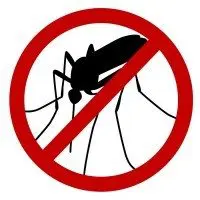Natural Insect Repellents

Pests can make an outdoor experience turn into a negative one quickly, but there is no need to head indoors when the insects are buzzing. While there are commercial insect repellents available, these concoctions often contain ingredients that naturally-minded people do not want to spray on themselves or their family members. Fortunately, there are natural insect repellent options that can be made at home or picked up in a store specializing in natural products.
Mosquito Repellent
 Mosquitoes aren't just annoying; they're also dangerous. The itchy aftermath of a mosquito bite is bad enough without the knowledge that these pests are able to carry and spread bloodborne, potentially fatal illnesses like West Nile virus. Anyone who plans to spend time outdoors should take care to prevent exposure to mosquitoes whenever possible, and using an insect repellent that is specifically aimed at keeping mosquitoes away can help.
Mosquitoes aren't just annoying; they're also dangerous. The itchy aftermath of a mosquito bite is bad enough without the knowledge that these pests are able to carry and spread bloodborne, potentially fatal illnesses like West Nile virus. Anyone who plans to spend time outdoors should take care to prevent exposure to mosquitoes whenever possible, and using an insect repellent that is specifically aimed at keeping mosquitoes away can help.
This do-it-yourself repellent contains essential oils that make bugs turn the other way.
- Combine eight drops each of rosemary and lemongrass essential oils with four drops of geranium essential oil in a small spray bottle.
- Add two tablespoons of water and one teaspoon of castor oil.
- Shake the bottle well before applying the spray.
The recipe can also be scaled up to ensure that repellent is on hand when it is needed.
Natural Bug and Mosquito Spray
For people who are concerned about the dangers of mosquitoes and the annoyance of other biting insects, this natural bug and mosquito spray works wonders. The premise is the same as the mosquito spray, but the difference in ingredients helps to repel other insects as well.
- Combine 30 drops of tea tree essential oil with 10 drops of geranium essential oil in a small spray bottle.
- Add one tablespoon of organic, non-GMO vegetable glycerin.
- Fill the rest of the bottle with water, but leave enough room to shake up the mixture.
This spray can be applied multiple times a day to ensure that it keeps working. It is recommended that people apply the mixture at least once every hour for the best results. Keeping the spray in a three-ounce bottle makes it a portable option to naturally and effectively keep bugs away when exploring the outdoors.
Customizable Bug Repellents
People who want to experiment with scent and effectiveness can combine carrier oils with essential oils to create a pleasant-smelling concoction that is still effective at keeping bugs at bay. Recommended carrier oils include jojoba and sweet almond oil. A carrier oil should be lightweight and easy to absorb into the skin. Essentially, the carrier oil is being used to dilute the essential oils while ensuring that the repellent absorbs into the skin to keep bugs away.
Coconut oil may be used to create a bug repellent, but most organic, unrefined coconut oils are solid at room temperature. For this reason, repellents that are made with coconut oil are best used as balms that can be applied to exposed skin before a person heads outdoors. The oil will need to be warmed until it is in a liquid state before essential oils are made, but it is acceptable to allow the oil to solidify once the repellent is complete.
Essential oils can be chosen for their scent, but they should also be chosen for their ability to repel insects. Many insects do not like the scent of eucalyptus, lavender, rosemary and citronella, so these are all good options for a do-it-yourself, customizable spray. Try using carrier oils and essential oils in a one-to-one ratio for the best results.
Buying Pre-Made Natural Insect Repellants
 The recipes above work great for people who have the time to mix up their own repellents, but what should people do if they are short on time? Instead of settling for a standard insect repellent, consider making the change to a ready-made natural formula.
The recipes above work great for people who have the time to mix up their own repellents, but what should people do if they are short on time? Instead of settling for a standard insect repellent, consider making the change to a ready-made natural formula.
Lemon essential oil is an effective option for repelling mosquitoes, and it also happens to be one of the main ingredients in Repel Lemon Eucalyptus. The lemon and eucalyptus combination keeps biting insects away and is safe to use on children. Plant-based repellents often get poor reviews from consumers, but this is one spray that has been touted as an effective spray for people who would like to stick with natural products.
Insects can suck the fun out of spending time outdoors, but it doesn't have to be that way. Making or buying a natural insect repellent offers the protection that nature lovers need without the negative side effects of commercial repellents. Try one of the options outlined above to keep the pests away naturally.


